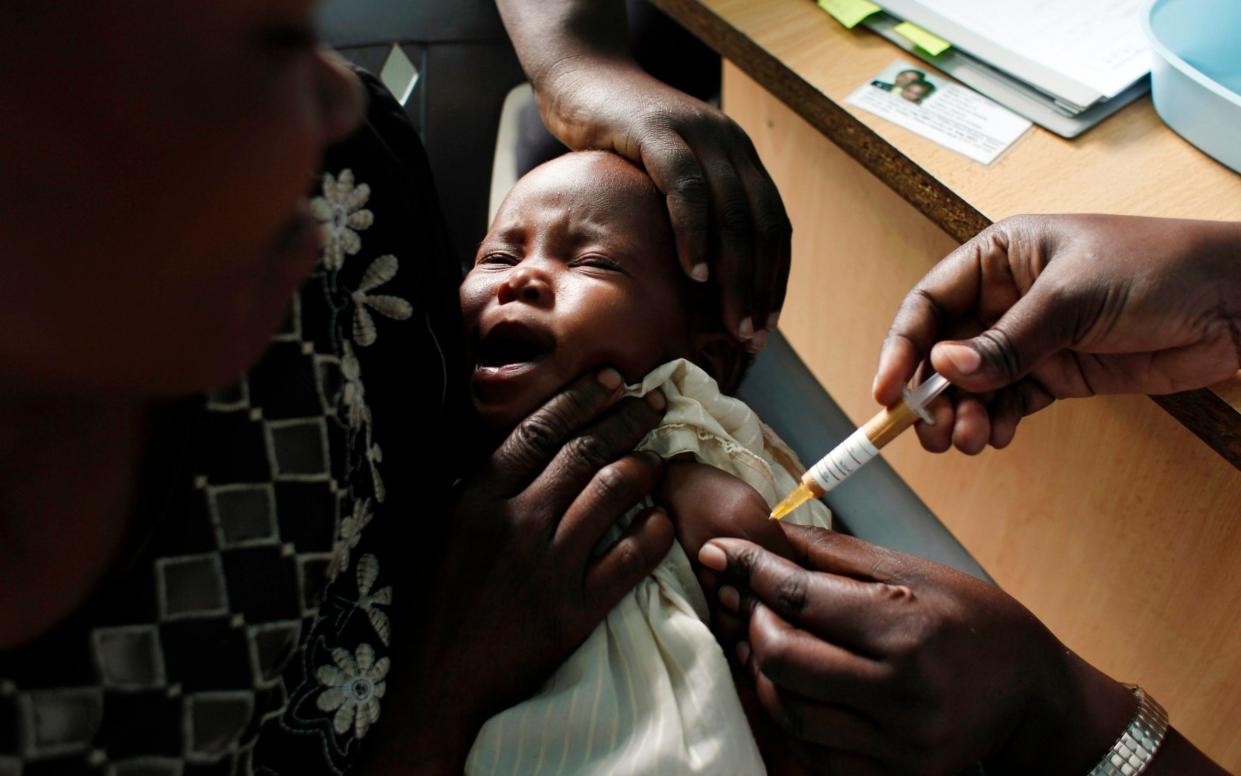Vaccines saved more than 50 million lives in Africa over 50 years, research shows

Vaccines have saved more than 50 million lives in Africa over the past half century, new research shows.
For every death averted, close to 60 years of life were saved on average, according to a report released by the World Health Organization (WHO).
The vaccines have been made available through the WHO’s Expanded Programme on Immunisation initiative, which was launched in 1974 to deliver life-saving vaccines to children across the world’s poorest countries.
The programme, which is supported by the UN and Gavi, an organisation dedicated to improving vaccine access, initially offered six different types of jabs. Today, that number now stands at 13.
Notable achievements have been made through the initiative, including a reduction in measles deaths, with an estimated 19.5 million deaths averted over the last 22 years, the WHO report said.
Africa has also witnessed a sharp decline in meningitis deaths, by up to 39 per cent in 2019 compared to 2000.
Maternal and neonatal tetanus has nearly been eliminated, while the continent was declared free of indigenous wild poliovirus in 2022.
“From disease prevention to eradication, the success story of vaccines is a compelling one. Millions of people are alive and healthy today thanks to the protection vaccines offer,” said Dr Matshidiso Moeti, WHO Regional Director for Africa.
“We have half a century of momentum and have accomplished so much. Now we must sustain and expand vaccine equity to end the threat of vaccine-preventable diseases.”
Gilles Fagninou, the Unicef Regional Director for West and Central Africa, highlighted the need to target communities with minimal vaccine coverage.
“We must focus our efforts on finding them and ensuring they receive the life-saving vaccines and other services they need,” he said.
However, there is more work to be done, the WHO report added.
The pandemic severely disrupted vaccination efforts – not just across Africa, but globally. In 2022, only 49 percent of countries achieved the global target coverage of 90 per cent for the diphtheria–tetanus–pertussis vaccine.
The report recommended increasing investment and enhancing surveillance systems to respond swiftly to vaccine preventable outbreaks.
“Vaccines are one of the most impactful and cost-effective investments in health and development in history,” said Thabani Maphosa, Managing Director of Country Programmes Delivery at Gavi.
“It is more important than ever that governments invest … to help ensure everyone, everywhere has an equal opportunity for a safe and healthy future.”
Protect yourself and your family by learning more about Global Health Security

 Yahoo News
Yahoo News 
